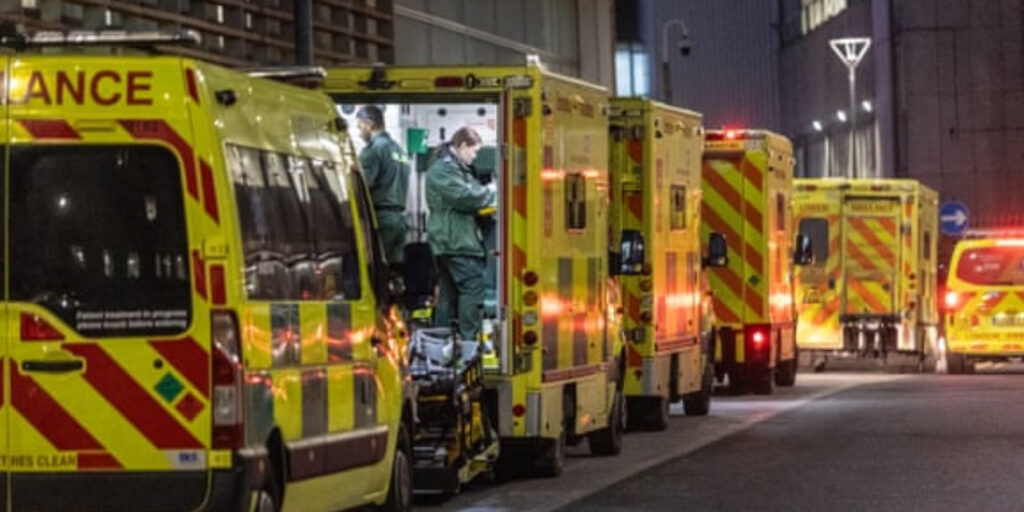Paramedics across England are witnessing patient fatalities in ambulances due to extensive delays at emergency departments, a Unison survey indicates.
The congestion in hospitals has resulted in up to 20 ambulances queuing outside emergency units in certain locales.
In some instances, crew members have faced over 12-hour waits to transfer patients.
The survey, involving nearly 600 ambulance staff, highlights the severe impact of these delays on both patients and paramedics. Unison has raised concerns that “car park care” is increasingly becoming standard practice, with medical personnel forced to attend to patients within ambulances.
Data from the survey shows that 77% of paramedics and emergency medical technicians have had to care for patients in ambulances while delayed outside hospitals over the past year.
Additionally, 68% have waited in hospital corridors or elsewhere, with paramedics often overseeing multiple patients to enable their colleagues to attend to new calls.
The findings also reveal that more than two-thirds of respondents observed a deterioration in patient health during these waits, and 5% reported deaths due to prolonged admission delays.
The NHS guideline stipulates a 15-minute target for ambulance crews to hand over patients to emergency departments, with no transfer exceeding 30 minutes.
However, the survey conducted in February and March shows that 16% of the respondents experienced handover delays of 12 hours or more, while 53% faced delays exceeding six hours.
Gavin Taylor, a Unison representative and ambulance worker from the north-west of England, expressed his distress, noting the significant impact these delays have on patient care and wellbeing.
The survey’s results coincide with Unison’s annual health conference in Liverpool, shedding light on the critical conditions facing health workers.
In the year leading to November 2024, ambulances accumulated over 1.5 million hours—equivalent to 62,500 days—idling outside A&E departments, according to a Guardian investigation.
Over the past year, 414,137 patients reportedly suffered harm due to prolonged waits in ambulances, with 44,409 experiencing severe potential harm, including permanent injuries or death.
Christina McAnea, Unison’s general secretary, stated that ambulance workers aim to provide the best possible care by swiftly reaching and treating patients, followed by a prompt hospital handover for further treatment.
However, she lamented that the reality has shifted dramatically, with makeshift treatment areas becoming the norm due to systemic pressures.
An NHS spokesperson acknowledged the ongoing strains across various healthcare sectors and emphasised collaborative efforts with the government and local NHS services to improve patient outcomes and support frontline staff.
A Department of Health and Social Care spokesperson highlighted the unacceptable nature of long ambulance handover delays and outlined plans for reforming the health service to enhance patient access to community-based treatments and reduce emergency service pressures.


